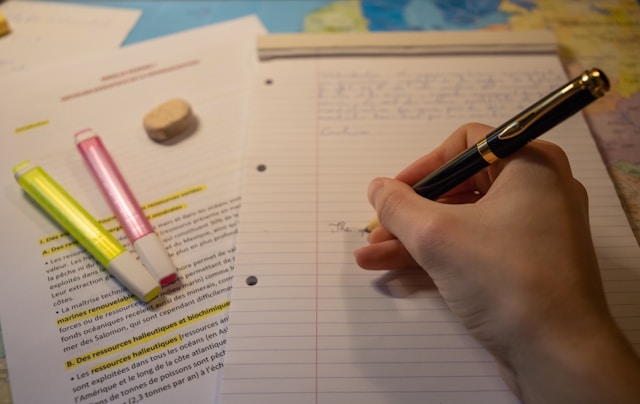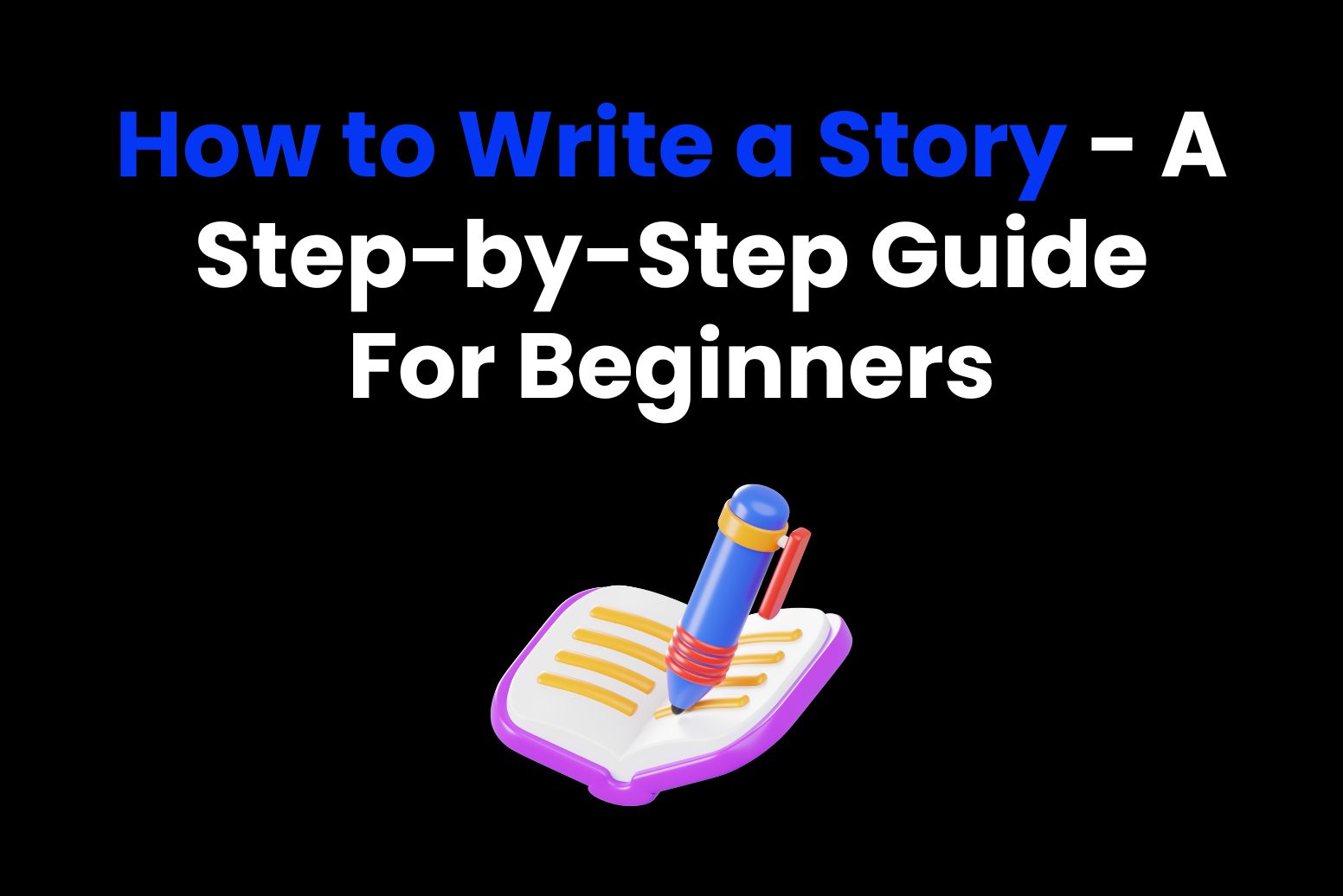
Learning how to write a hypothesis is a crucial skill that will serve you well throughout your studies. No matter what degree you’re studying, you will probably have to write a hypothesis from time to time.
This is true for natural and social science subjects, ranging from biology to politics. Sure, there are different hypotheses, and you will need to choose the one most suited to your discipline.
And given that learning how to write a hypothesis from scratch isn’t easy, we’ve prepared this beginner’s guide. It covers all bases, starting with what a hypothesis is and why it’s necessary.
We then show you the key elements of a hypothesis before revealing the six main types that you might have to make in your academic work. We then present the characteristics of the best hypotheses and reveal five disarmingly simple steps you can follow to write one.
Sound good? Read our beginner’s guide and learn how to write a hypothesis like a pro.
What is a hypothesis?
A hypothesis is key to research. It’s a statement that you, as the researcher, should make to show your reasoning and to make predictions. Then, when you conduct your research, you can prove or disprove your initial hypothesis. For example:
- Unlicensed fishing is severely damaging fish stocks in the Atlantic Ocean.
- Vaping can significantly increase your cancer risk.
- Adolf Hitler’s rise to power in Germany had nothing to do with the Great Depression.
The best way to look at a hypothesis is that it’s an educated guess. You’re making a prediction about something you know about, but you aren’t 100% sure. You’ve done some initial research, and you think you’re on the right path. But you might be proven wrong.
For example, Hitler’s rise to power in Germany probably wasn’t directly caused by the Great Depression. But the Wall Street crash surely had something to do with it. So, this hypothesis would probably be disproven with thorough research into the topic.
Though just one example, it’s indicative of how hypothesizing works in academia. If you’re keen to experiment with different research topics, use our tool to brainstorm research ideas. It can help you come up with a hypothesis that you may want to test in your upcoming work.
Understanding variables – Dependent & independent
To truly understand how it works and to know how to write a hypothesis, you need to be aware of the role of variables. There are two types – dependent and independent variables.
This is just a fancy way of describing the two things that you’re testing in your hypothesis. Independent variables are changed in the testing, while dependent variables can only be observed.
Let’s take our three examples in the introduction and split them into dependent and independent variables so you can see how a typical hypothesis is structured:
| Dependent Variable | Independent Variable |
| Fish stocks in the Atlantic Ocean | Unlicensed fishing |
| Cancer risk | Vaping |
| Adolf Hitler’s rise to power | The Great Depression |
Sticking with our Hitler example, we’re observing his rise to power, so that serves as the dependent variable. The initial hypothesis posits that the Great Depression had nothing to do with his ascension. But throughout our research, we could test different things, including the First World War, public sentiment, and other things that also contributed to his rise.
In essence, a hypothesis tests a dependent variable against an independent variable. However, as we show below, there are different types of hypotheses that you need to be aware of.
The different types of hypotheses in academic writing
Before learning how to write a hypothesis, you need to understand that there are different types. The hypothesis that you choose to write depends on what information you’re presenting. It’s also influenced by your area of study. The six most common types of hypotheses in academic writing are:
1: Simple hypothesis
As the name suggests, this is the most straightforward hypothesis to write. It’s ideal when you aim to show the difference between one dependent variable and one independent variable. For instance:
- Dependent variable: Higher chance of getting cancer.
- Independent variable: Smoking more cigarettes.
So, a simple hypothesis is that you have a higher chance of getting cancer if you smoke more cigarettes, as shown in this example.
2: Complex hypothesis
This is similar to a simple hypothesis but includes two or more dependent and independent variables. For example:
- Dependent variables: Higher chance of getting cancer and dying at a younger age.
- Independent variables: Smoking more cigarettes and living a sedentary lifestyle.
Here, we could hypothesize that smoking more cigarettes and living a sedentary lifestyle increases the risk of getting cancer and dying at a younger age.
3: Directional hypothesis
In this example, the researcher aims to predict the direction of (or often the relationship between) two variables. This type of hypothesis is usually tested over time.
For example, we might hypothesize that university students who drink caffeine early in the morning on the day of their exams get better results than those who don’t.
4: Non-directional hypothesis
In contrast to the above, a non-directional hypothesis is when a statement is made about something without a prediction about the relationship or direction.
This is much more open-ended and is a way of making a hypothesis without committing to one side or another. For example, there will be a difference in the test results between students that drink caffeine and those that don’t.
As you can see, we’re not specifying what we think the difference will be, but we are still presenting a hypothesis that we can investigate.
5: Null hypothesis
This is when a statement is made that goes against the hypothesis. It has to be a negative statement to be considered a null hypothesis.
For example, you might make the claim that drinking caffeine has no impact on student exam results.
6: Causal hypothesis
Finally, a causal hypothesis is one that implies a cause-and-effect relationship of some sort. It’s a common type of hypothesis in the field of natural sciences and often appears as a type of simple or complex hypothesis.
For example, you might suggest that intermittent fasting leads to long-term weight loss.
The characteristics of a strong hypothesis

So, what makes a strong hypothesis? What should you understand before writing your initial research hypothesis? Here are some things to consider:
Accurate and relevant
The whole point of a hypothesis is that you’re going to test it with thorough research. So, there’s nothing wrong with disproving your hypothesis. In your research, you might find that you were slightly wrong about something, which made a huge difference to your prediction.
But still, your hypothesis should be accurate and realistic. In other words, there’s a difference between disproving a hypothesis and being downright wrong from the outset. Here are some examples of bad hypotheses that are so far wide of the mark:
- Using fossil fuels has nothing to do with climate change.
- Smoking cigarettes can lead to health benefits.
- Drinking alcohol before exams will result in better test scores among university students.
These hypotheses are so out there that you could disprove them in the first sentence of your work. Therefore, they’re not suitable.
You can take a slightly controversial position when making a hypothesis, provided that there’s some research and evidence out there that can back it up.
Measurable
You need to be able to test and measure your hypothesis. If you can’t, there’s little point in writing it. Therefore, your choice of independent variable is crucial. Also, both the variables need to have some type of relationship. You can’t bring together two completely separate variables, as you won’t be able to test them against one another.
If you’re struggling to think of a measurable hypothesis, you can try our thesis statement generator. You can enter details about the research you want to do, and our tool will help you to write a measurable hypothesis. You can experiment with it until you’re happy with the predictions that you make.
Clear and easy to interpret
The best hypotheses are those that are clear and easy to interpret. The person reading your assignment will likely refer to the hypothesis throughout.
If they don’t understand the hypothesis, they will struggle to understand the whole paper. So, use simple language and ensure the concepts are relatable. If your hypothesis is too complex, it will make your entire essay or assignment difficult to understand.
How to write a hypothesis in 5 simple steps
Now that we’ve covered the bases, we want to show you exactly how to write a hypothesis in five simple steps:
Step 1: Begin with initial research
We’ve already mentioned that your hypothesis needs to be accurate and relevant. To avoid missing the mark, you need to conduct some initial research. Read a book or some articles about the topic you’re keen to research.
You don’t need to be an expert on a topic to make a hypothesis, but you do need to be able to interpret the research correctly. This initial research will also show you if there’s enough information out there for you to test your hypothesis.
Step 2: Question what you know
After conducting your research, ask specific questions and interrogate the subject matter. Cause and effect are crucial to hypothesizing and testing your understanding of something, which will generate ideas and help you make some predictions.
For instance, taking our example from the first section about Adolf Hitler’s rise to power, we might question:
- Where did Hitler come from, both literally and figuratively?
- What circumstances in Germany – and further afield – allowed for the spread of fascist sentiment?
- Which people and governments allowed Hitler’s Nazi party to take control of the country?
- What role did the Great Depression and living conditions in Germany play in Hitler’s rise?
These initial questions are enough to guide preliminary research. It’s not a stretch to get to the above hypothesis after researching the various contributing factors to Hitler’s ascent to power.
Step 3: Settle on your variables
The most important elements of any hypothesis are the variables. You might not arrive at the ideal variables right away, so we recommend listing some options.
Create one column for dependent and another for independent variables. Then, list some ideas under each heading and consider their relationship.
Bring several together and think about how they interact with one another. This is a great way to explore different ideas when creating a hypothesis and will help you to brainstorm.
Step 4: Write your hypothesis
You’re now ready to write your initial hypothesis. Remember, your hypothesis doesn’t need to be 100% correct. It just needs to be your best, educated guess about something.
It should also be accurate and relevant, and make sure it’s not obviously wrong. You might want to ask your professor or supervisor to check it before proceeding. You could also ask your classmates for their thoughts.
When writing your hypothesis, make sure it’s accurate and error-free. You can run your hypothesis through our grammar checker, which means it will be spot-on before you proceed with your research.
Step 5: Conduct an initial test
When you’re happy with your hypothesis, test it out. Extend your research and consider various sources that might prove or disprove your predictions. You can always change or adapt your hypothesis before presenting it in your work.
The key thing to remember is that your hypothesis doesn’t need to be perfect. However, slight adjustments at this stage can make your research easier, so it’s worth testing it out before committing to a hypothesis that you struggle to prove throughout your research.
How to write a hypothesis: 5 advanced tips
As we bring this guide to a close, we want to leave you with some advanced tips to help you stand out from the crowd:
- Educate yourself about the role of a hypothesis as a research tool. This will help you as a researcher more broadly and can help to guide quantitive research projects at university.
- Consider the different ways to test a hypothesis to ensure that the hypothesis you present at the start of your paper is measurable.
- Explore how advanced AI can help you conduct research more quickly and efficiently. Discover how to prompt AI tools to hypothesize and enhance your research questions.
- Read up on how to start a research paper to go beyond the hypothesis. Sure, a hypothesis is a key starting point, but it’s not the only thing to think about when writing an essay.
- Learn from the best by searching online resources like JSTOR and PubMed. Consider which hypotheses other researchers have made in your field and use them as inspiration.
You probably won’t land on a hypothesis right away. You will need to experiment and conduct research, as shown above. But these advanced tips will help you take things further and will improve the quality of your academic assignment.
The bottom line: How to write a hypothesis
Writing a hypothesis isn’t as difficult as it may seem from the outset. In fact, once you get your head around what a hypothesis is, why it’s necessary, and the different types, you can start to formulate your own ideas.
The key takeaway is understanding the variables’ fundamental role in a hypothesis. This will help you posit ideas and bring your research together. You can then follow our simple five steps to write your hypothesis before drawing on our advanced tips to improve your research.
We also invite you to read our FAQs below for more information that will help you to write a hypothesis.
How to write a hypothesis FAQ
What is an example of a hypothesis?
If you drink too much alcohol, you increase your risk of liver disease. This is an example of a simple hypothesis. It has an independent variable (drinking too much alcohol) and a dependent variable (increased risk of liver disease). Therefore, via thorough research, I can test this hypothesis and either prove or disprove it.
How do you write a good hypothesis?
You can follow these five simple steps to write a good hypothesis:
- Begin with initial research.
- Question what you know to be true.
- Settle on your variables (dependent and independent).
- Write your hypothesis – you can use AI to help you.
- Conduct an initial test and make small changes if necessary.
How do you formulate a hypothesis with AI?
You can use Arvin AI to formulate a hypothesis for free. Prompt our chat tool to create a hypothesis based on your area of research. You can also use our thesis generator to expand on your initial hypothesis. With our initial recommendations, you can then tailor it to your research and consider which variables to test.
Does my hypothesis need to be correct?
No, it doesn’t. A research hypothesis is just a prediction and it can be right or wrong. That said, your hypothesis shouldn’t be obviously wrong. For instance, hypothesizing that illegal fishing doesn’t deplete fish stocks is probably not a good move.
You could adjust the hypothesis to state that illegal fishing isn’t the main cause of depleted fish stocks, going on to suggest that climate change, the illegal dumping of sewage, and other factors are worse than illegal fishing for the health of stocks up and down the coast.






